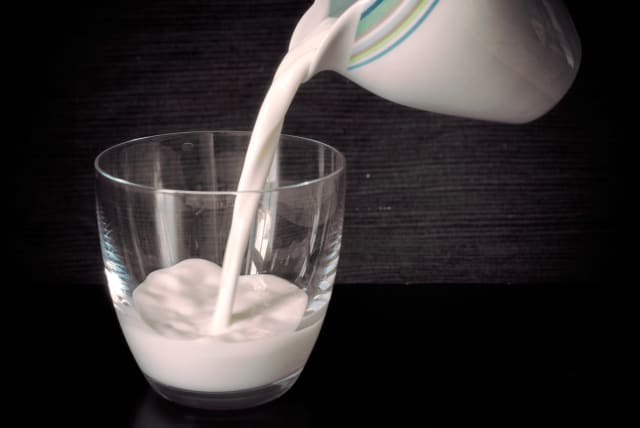Lactose intolerant? You should be eating these calcium-rich foods

If you want to increase the amount of calcium in your body, check out these 12 calcium-rich foods that are an excellent source of this important mineral.
Calcium is found in a range of foods besides just the cheese you eat and the milk you add to your coffee.
If you're lactose intolerant or don't want to eat dairy for other reasons, there are plenty of other foods explored in this article that are rich in calcium or will help your body absorb this important mineral.
Calcium benefits the body in many ways: It is needed for bone development from childhood through adulthood, it helps regulate muscle contractions, strengthens teeth and transports nutrients. It also helps to prevent bones from becoming brittle, a problem observed in women over the age of 50.
Milk is considered a good source of calcium, but there are many other foods that contain more calcium than regular cow's milk.
If you want to increase the amount of calcium in your body without relying only on milk, check out these 12 calcium-rich foods that are an excellent source of this important mineral.
12 calcium-rich foods
Sesame: Sesame seeds are ground into tahini, are sprinkled on bread, pretzels and bourekas and are also commonly added to salad.
Chia seeds: Besides being a great source of fatty acids, omega-3 and fiber, chia seeds also provide a good amount of calcium. They're delicious on a salad or when added to acai, muesli and other foods.
Tofu is a versatile food made from soybeans. The cooked cubes make salads or omlettes good sources of calcium.
Almonds: A healthy handful rich in calcium, it's best to eat them in their natural form, but you can also toast them with a sprinkle of sea salt or blend them into almond milk.
Leafy greens: Greens like cabbage and spinach are full of calcium. Cabbage can be eaten boiled, baked with spices, in a salad, stuffed, etc. Spinach is delicious in salads, pastas or as a cooked side dish on its own.
Sardines: Besides calcium, these small fish are rich in protein and omega-3 fatty acids.
Salmon: Salmon is a great source of selenium, an important nutrient that is involved in DNA synthesis, thyroid hormone metabolism, and reproductive health and also calcium. Bake with a variety of spices, mix grilled pieces into a salad or pasta, or order sushi with salmon.
White beans: White beans have fiber and protein and are a good source of numerous micronutrients including folate, magnesium, vitamin B6 and calcium. They are nutritious legumes that can be eaten as a cooked side dish or added to salad.
Oranges: Although not rich in calcium, the vitamin C in oranges helps in the absorption of calcium. Eat one several times/week to be sure that all the extra calcium you're now eating will be absorbed.
Broccoli: This cruciferous veggie contains fiber, vitamin C, vitamin K, iron, and potassium besides calcium. Roast it with garlic or cook with other veggies and blend it into a soup.
Dried figs are a naturally sweet and delicious treat with the bonus of containing the right amount of calcium.
Calcium is one of the enriched minerals in breakfast cereals, and eating them will give us a shot of calcium that will recharge our bodies and give us the energy to get through a busy day.
Jerusalem Post Store
`; document.getElementById("linkPremium").innerHTML = cont; var divWithLink = document.getElementById("premium-link"); if (divWithLink !== null && divWithLink !== 'undefined') { divWithLink.style.border = "solid 1px #cb0f3e"; divWithLink.style.textAlign = "center"; divWithLink.style.marginBottom = "15px"; divWithLink.style.marginTop = "15px"; divWithLink.style.width = "100%"; divWithLink.style.backgroundColor = "#122952"; divWithLink.style.color = "#ffffff"; divWithLink.style.lineHeight = "1.5"; } } (function (v, i) { });

